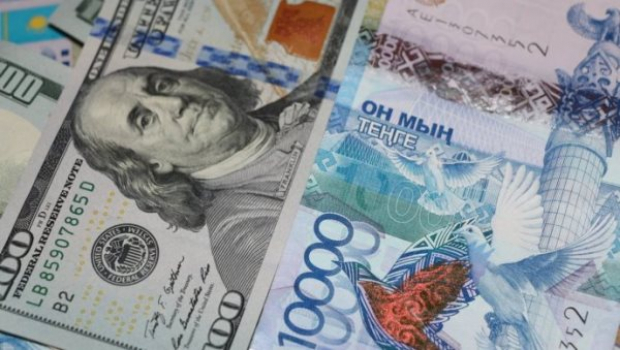ASTANA – The Kazakh National Bank recently denied rumours being spread on social media of a pending currency devaluation.
“At the moment there are no obvious risks of devaluation. Minor fluctuations in the exchange rate of the tenge observed recently are a consequence of an increase in seasonal demand for foreign currency due to summer vacations,’’ reads the National Bank’s statement.
Another factor affecting the tenge exchange rate is the increase in the rates by the United States Federal Reserve System (FRS), which in turn leads to an increase in the dollar value on global markets and capital outflows from developing to developed countries.
According to Bloomberg data, the value of Kazakh national currency has dropped 2.57 percent against the dollar since the beginning of the year, while the Argentine peso, Turkish lira and Brazilian real have lost around 32, 20 and 12 percent of their value against the dollar within the same period.
“Sanctions introduced by the U.S. against Russian companies in April resulted in rising volatility and weakening of the ruble, which consequently affected the tenge. However, the tenge weakened by only 4.5 percent in the first week after the sanctions compared to ruble losing 11.19 percent of its value,” said National Bank Monetary Operations Department Director Aliya Moldabekova.
The world oil market, however, exerts a positive influence on the tenge exchange rate, as the average oil price is approximately $70 per barrel. This also benefits the country’s balance of payments.
“As of May, the annual inflation rate stood at 6.2 percent and continues to decrease within the target range for the year. All the components of inflation, such as [prices for] services, food and non-food products, are observed to decelerate since the beginning of the year. Conditions influencing the inflationary processes are favourable and inflationary expectations are also declining,” the statement noted.
Analysis of historical data on the tenge exchange rate after the transition to a floating regime demonstrates the annual trend of falling volatility in the exchange rate from approximately 15 percent in 2016 to 6.9 percent in 2017 and 6.7 percent in 2018. This testifies to the stabilisation process of the tenge exchange rate market formation given zero interventions to the currency market made by the National Bank during the last seven months, the regulator noted.


